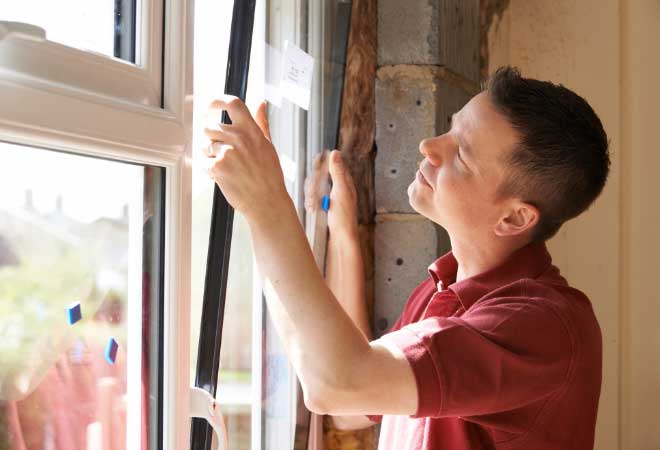Climate change is hard to miss. From sudden and severe rainfall that causes flooding to poor air quality from wildfires and ice storms that threaten power to our homes, climate change is happening here and is happening now. is Earth Day (external), and we’re taking action today, and every day, to mitigate and adapt to the effects of climate change in Halton.
Our Climate Action Journey
In September 2019, Halton Regional Council declared a Climate Emergency and the Region committed to working through the Partners for Climate Protection (PCP) Program (external), a five-milestone process that supports Canadian municipalities in their climate action efforts. We put a great plan in place (our Corporate Climate Action Plan (PDF file)) and started our journey to net-zero greenhouse gas (GHG) emissions by 2045.
Through the work presented in our 2024 Corporate Climate Action Progress Report (PDF file), we are proud to share that we have achieved the final two milestones in the PCP Program! This means that we have made progress in implementing our plan, monitoring our GHG reduction targets, and reporting on our results. This does not mean the end of our climate action journey. Check out our new interactive dashboard (external) that tracks our work as we continue implementing our plan to reduce GHGs from Regional facilities and operations.
Climate Actions across the Region
Big and small, our actions across Halton are making a difference in taking care of our planet. From waste diversion programs to giving a home to over two million honeybees at the Biosolids Management Centre, this Earth Day, we’re showcasing the ways Team Halton is helping the environment, one step at a time. Meet Lisa, our Climate Change Champion (and Executive lead) and, her team as we take a climate action tour across several Halton Region sites and facilities:
Earth Day with Halton (YouTube video link)
Over in Waste Management, our Blue Box recycling, Green Cart Organics, and Yard Waste programs reduce the amount of waste going into the landfill, lowering greenhouse gas (GHG) emissions.
We also work closely with Conservation Halton and Scouts Canada to plant trees at the Halton Waste Management Site - over 7,000 trees have been planted over the years!
A staff-led Green Team at Creek Way Village Long-term Care Home is committed to educating visitors, residents, and staff on waste reduction and diversion. With waste programs in place and posters around every corner, it’s hard NOT to recycle over at Creek Way!
Over at the Biosolids Management Centre, we provide a home for over 2 million honeybees through a partnership with Backed By Bees (external link). These bees help pollinate plants that help absorb CO2 from the atmosphere and clean our air.
At Sedgewick Crescent Child Care Centre, staff get the kids involved by planting a garden to attract bees, butterflies, and pollinators. They also role model “refuse, reduce, reuse and recycle” to our youngest residents!
Last but not least, our Wastewater Treatment Plants play a critical role in protecting the natural environment by treating wastewater before it returns to Lake Ontario. In addition to monitoring our GHG emissions, we are actively collaborating with renewable energy experts to reduce our emissions and increase our climate resiliency with the latest biogas utilization, sewage heat recovery, and solar energy technologies.
Climate change affects us all, and we all have a role in protecting our environment and ensuring a sustainable future.
Here are some ways you can make a local impact on climate change:
Improve your Home's Efficiency.
Easily reduce your emissions:
- Check your windows and doors for air leaks, use weatherproofing strips, seal draft doors, and consider energy-efficient windows and doors.
- Install a smart thermostat.
- If your home's heating and/or cooling system needs replacing, install a heat pump or high-efficiency furnace. Curious about heat pumps? Watch this video to learn more (YouTube video).
- Reduce water usage — pumping, treating, and heating water requires energy.

Homes and buildings account for 58% of our community's emissions.
Reduce Your Transportation Emissions.
Transportation accounts for 36% of our community's emissions. Consider other transportation methods to make an impact:
- Walking, biking, or rolling to your destination whenever possible.
- Taking advantage of public transportation.
- Considering leasing or purchasing an electric vehicle when you're in the market for a new car.

Regional staff showcase their electric cars at a Climate awareness event at Halton Regional Centre.
Limit food waste and eat local.
It's estimated that about one in five meals goes into the garbage. Discarded food in a landfill emits greenhouse gas emissions.
- Where possible, eat locally sourced, in-season produce to reduce food mileage.
- Check out our Simply Local guide to find where you can pick your own produce and purchase local products.
- For 10 easy tips on reducing food waste, visit Love Food Hate Waste Canada (external link).
Local farm in Halton.
Stay prepared.
Stay up-to-date with local services to help you and your family adapt to climate change by:
- Using our Emergency Preparedness personal guide (PDF file) to make a 72-hour emergency preparedness plan and kit in the event of extreme weather.
- Exploring the Enhanced Basement Flooding Prevention Subsidy Program, making home improvements easier and more affordable to help reduce the risk of basement flooding.
- Learning how to protect yourself from Lyme-carrying black-legged ticks. There is evidence that climate change, along with other factors including animal migration patterns, deforestation, urbanization, and globalization, has contributed to the expanded range of ticks, increasing the potential risk of Lyme disease and other tick-borne diseases.
Emergency Preparedness Guide and kit.
Resources
- Check out the Chair’s Corner – Climate Change: Local Action to Address a Global Issue.
- Halton Regional Climate Dashboard (external link)
- 2024 Progress Report on Halton’s Corporate Climate Action Plan (PDF file)
- Halton’s Corporate Climate Action Plan (PDF file)
- Climate Change and the Environment
- Partners for Climate Change Protection Program (external link)
- Check out our Davis Road Booster Station project funded with support from the Canada Building Community Fund.
- Learn about assisted and supportive housing construction projects, including our first Passive House Certified multi-residential building at 265 Kerr Street, which sets a standard for energy-efficient building design and the use of sustainable resources.
- Follow @regionofhalton on X (Twitter), Facebook, LinkedIn, and Instagram.
